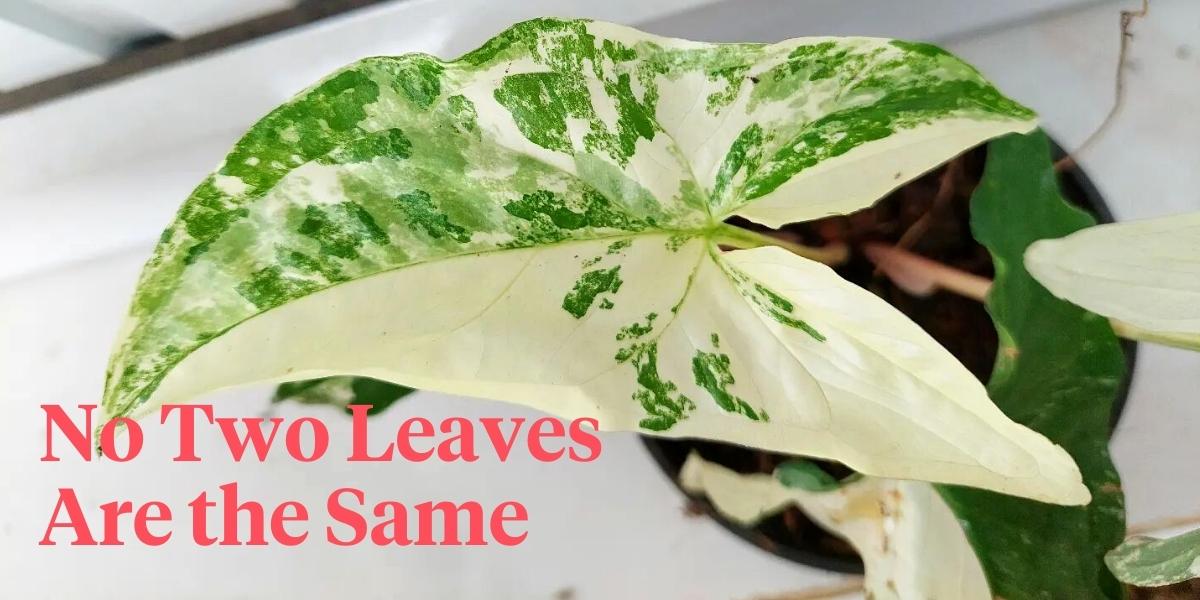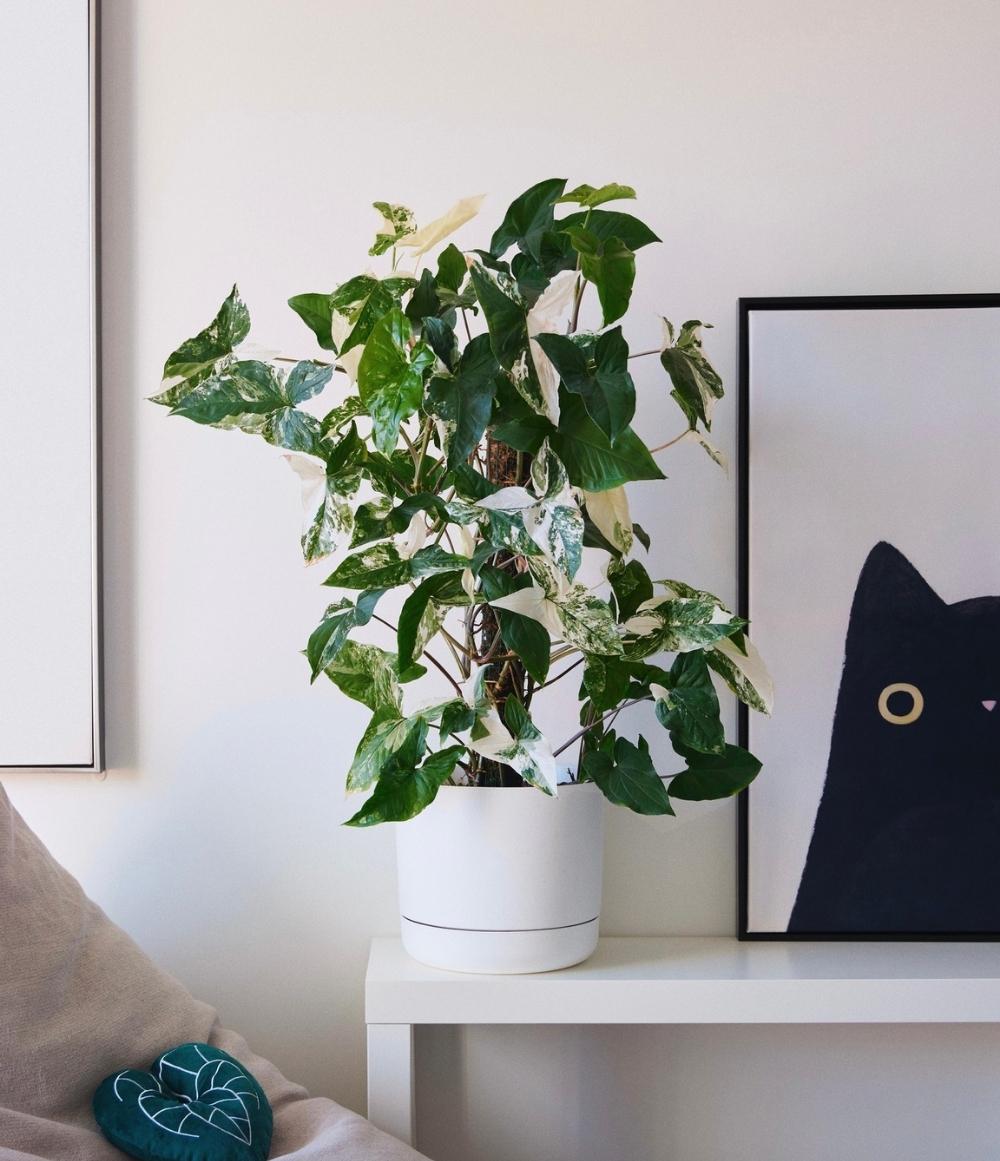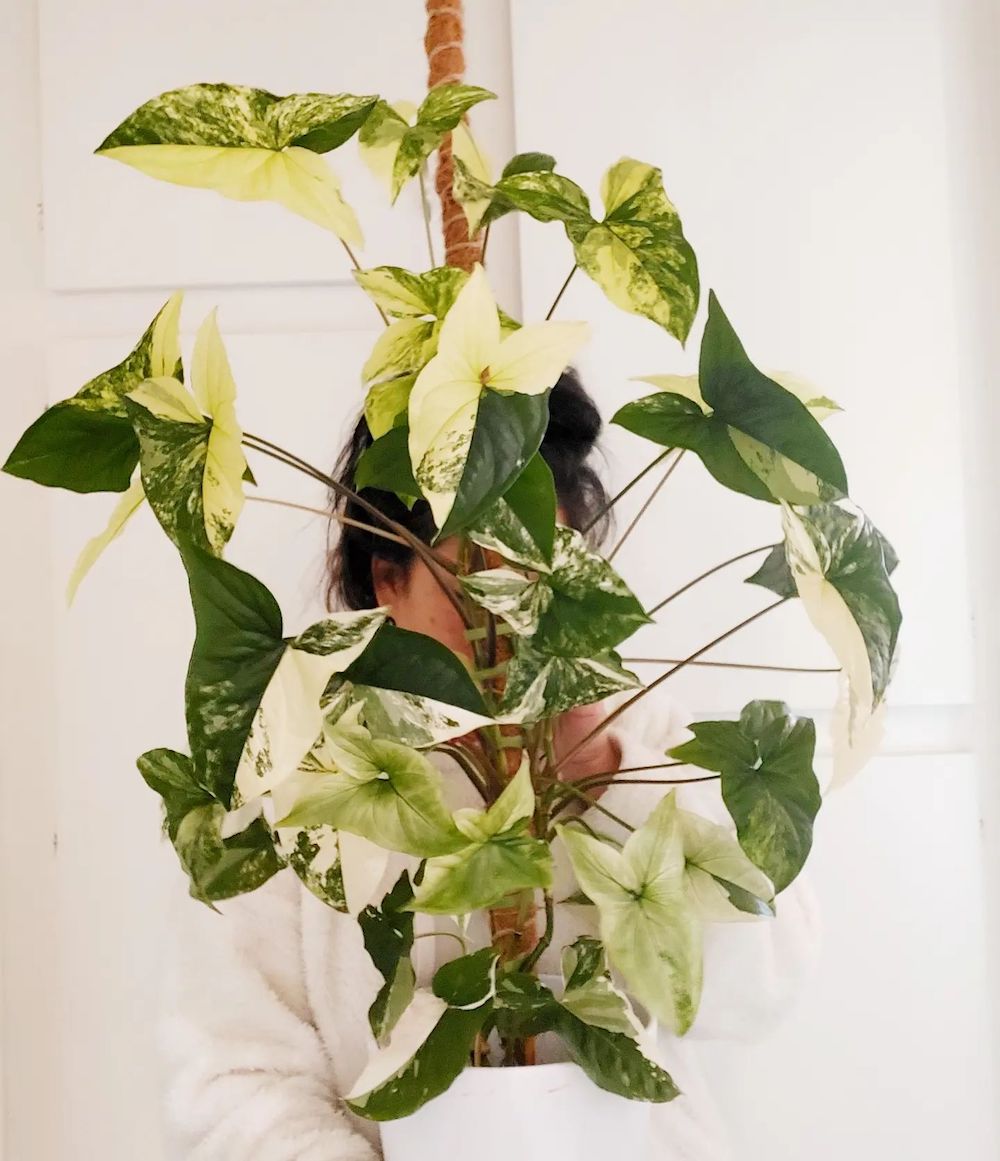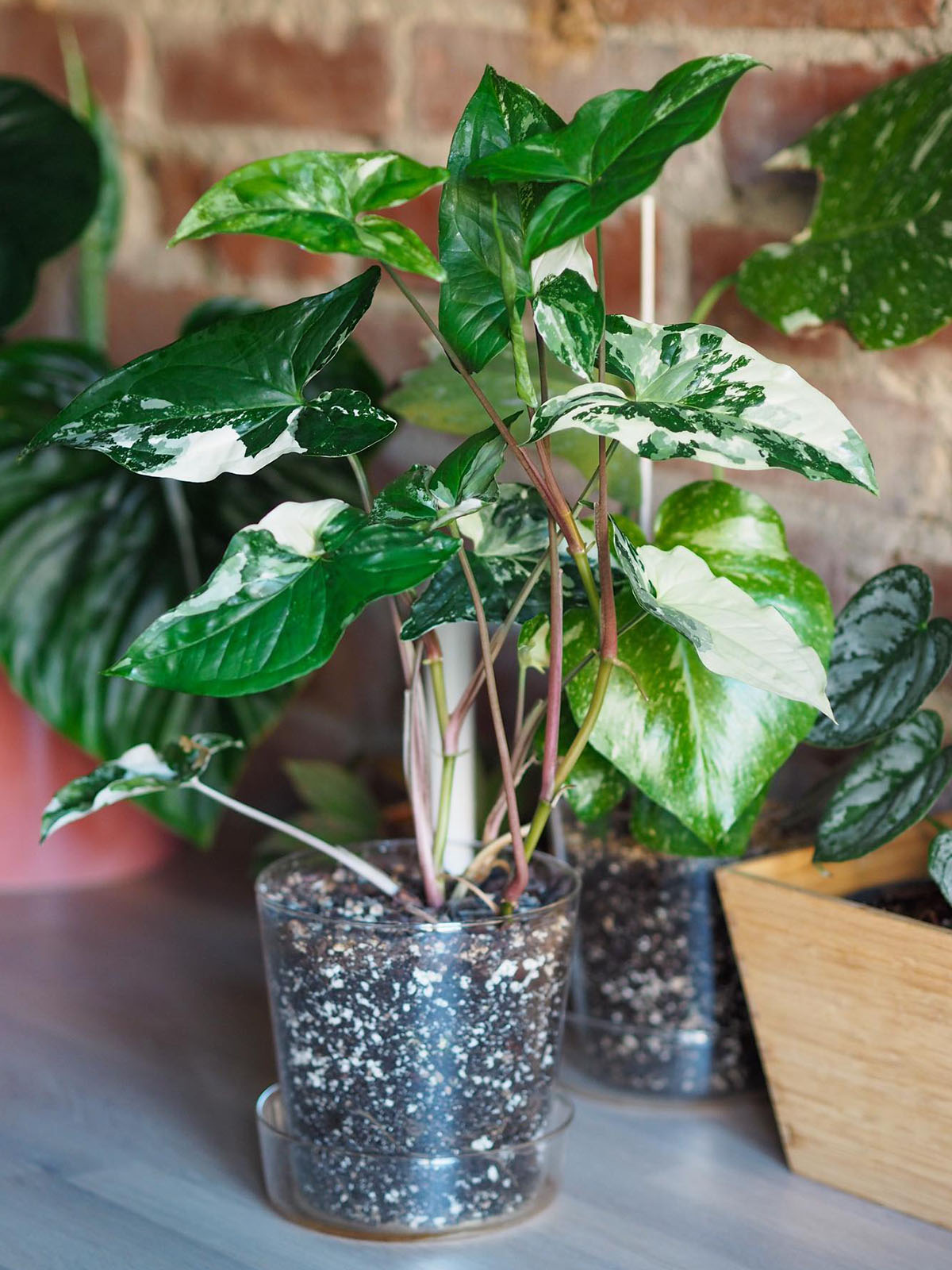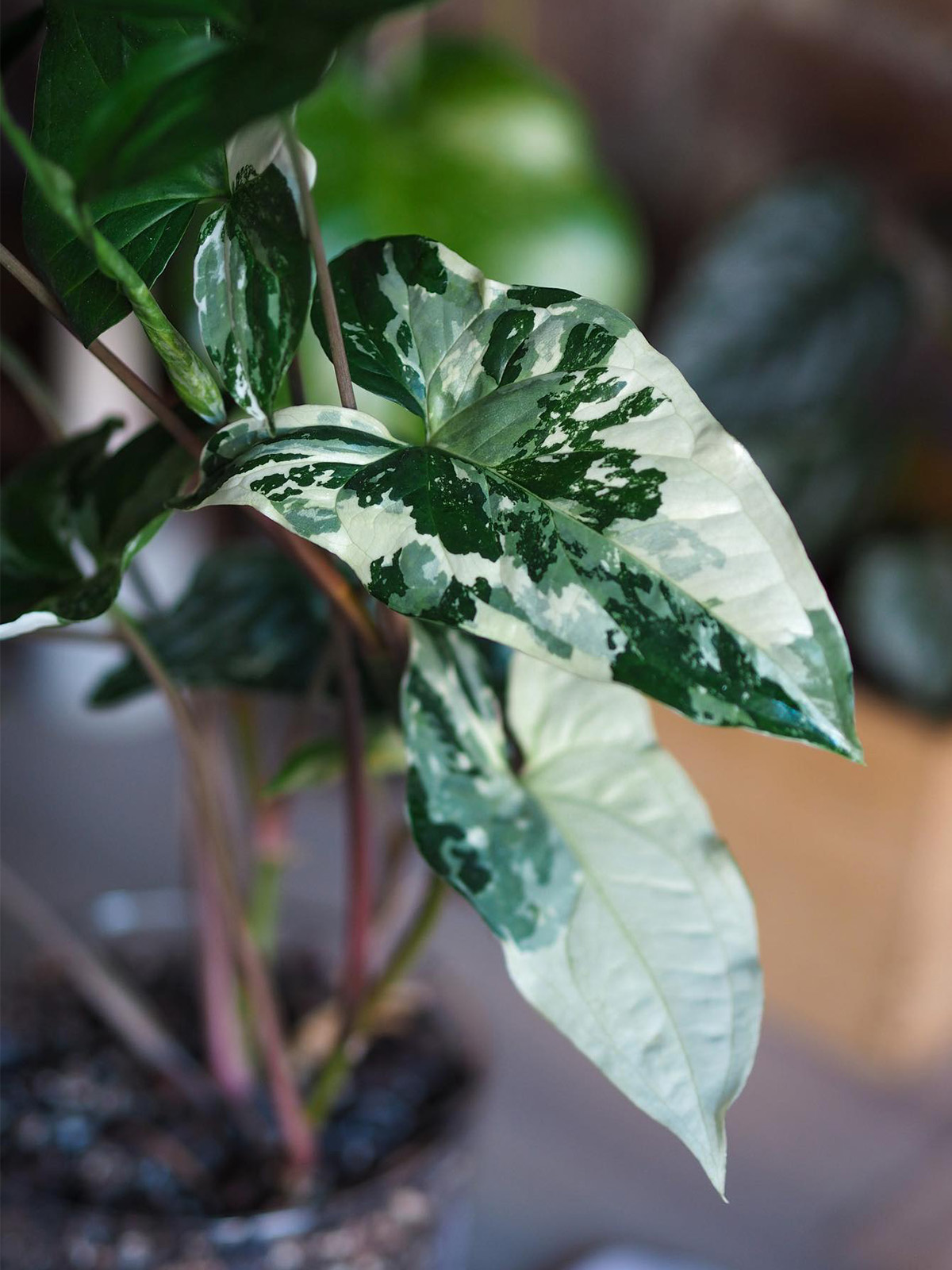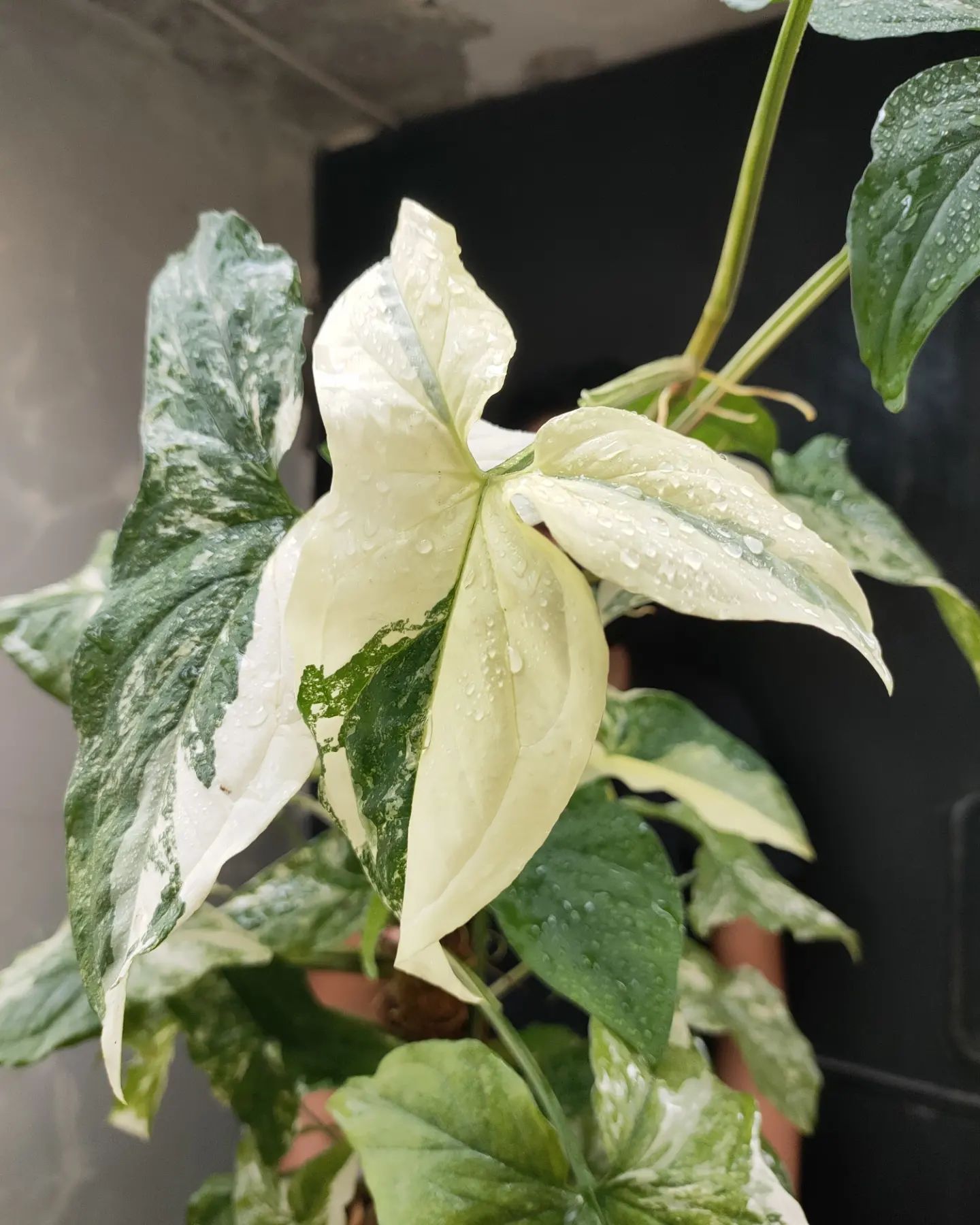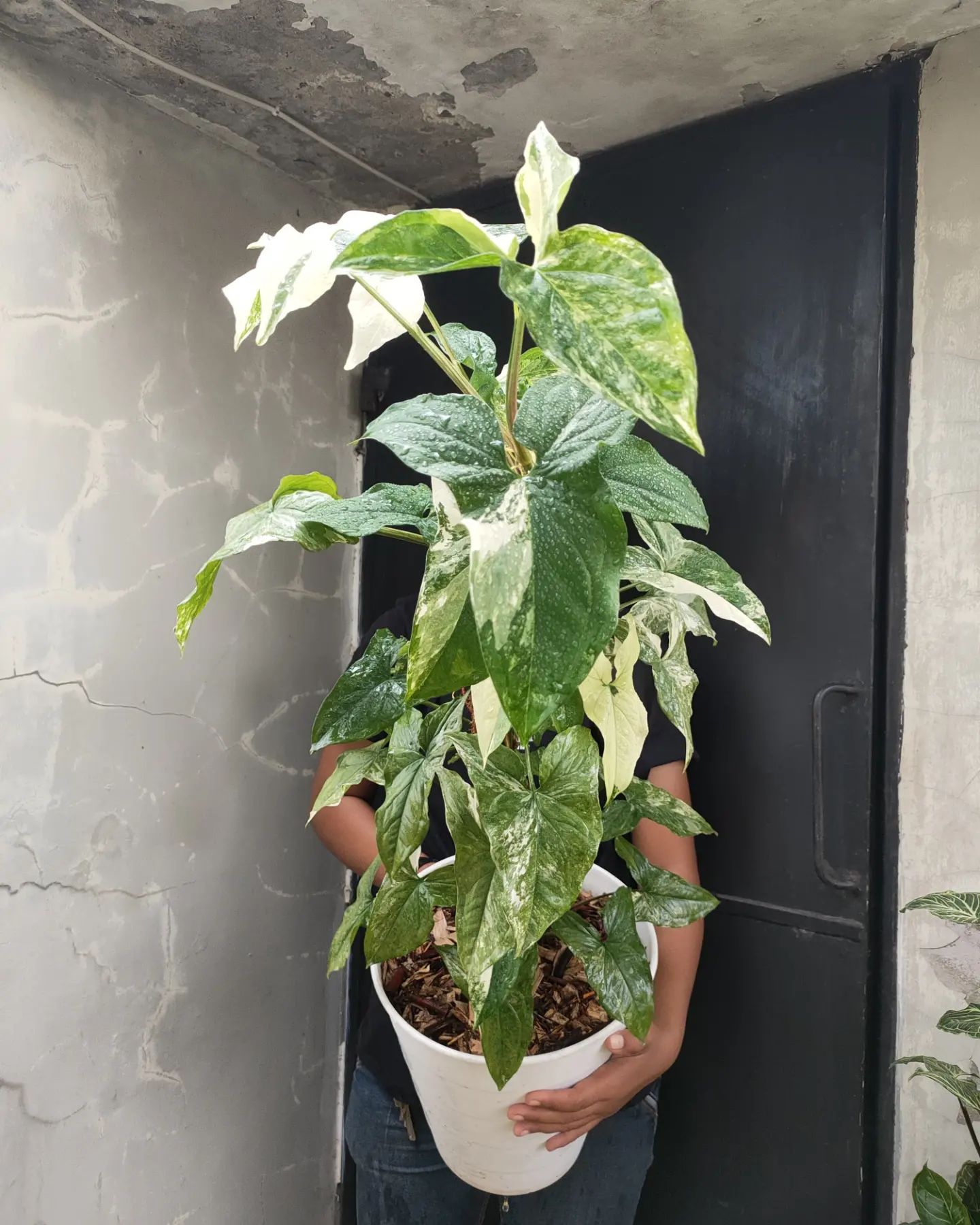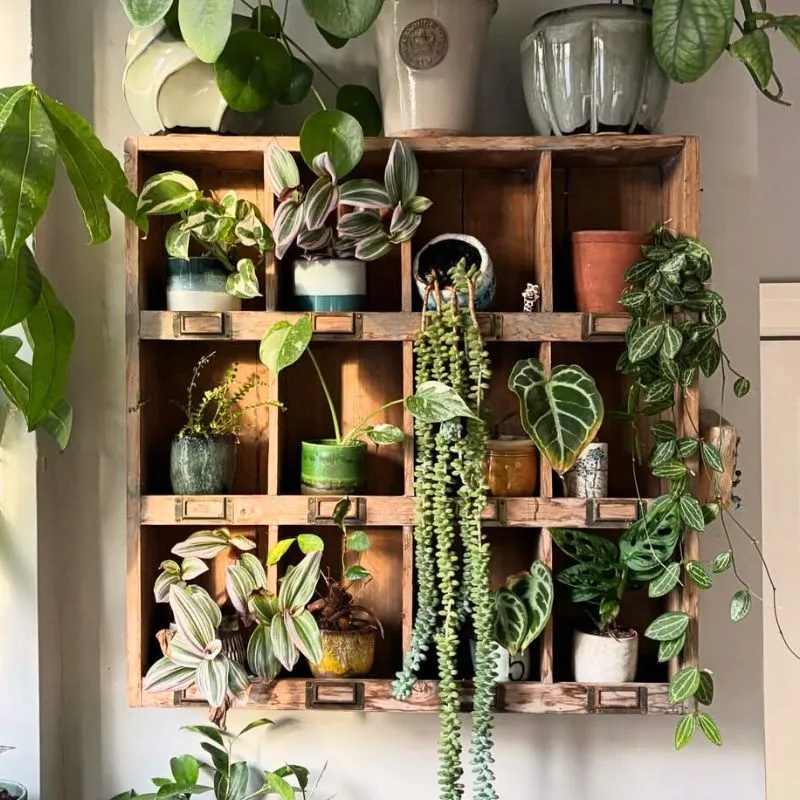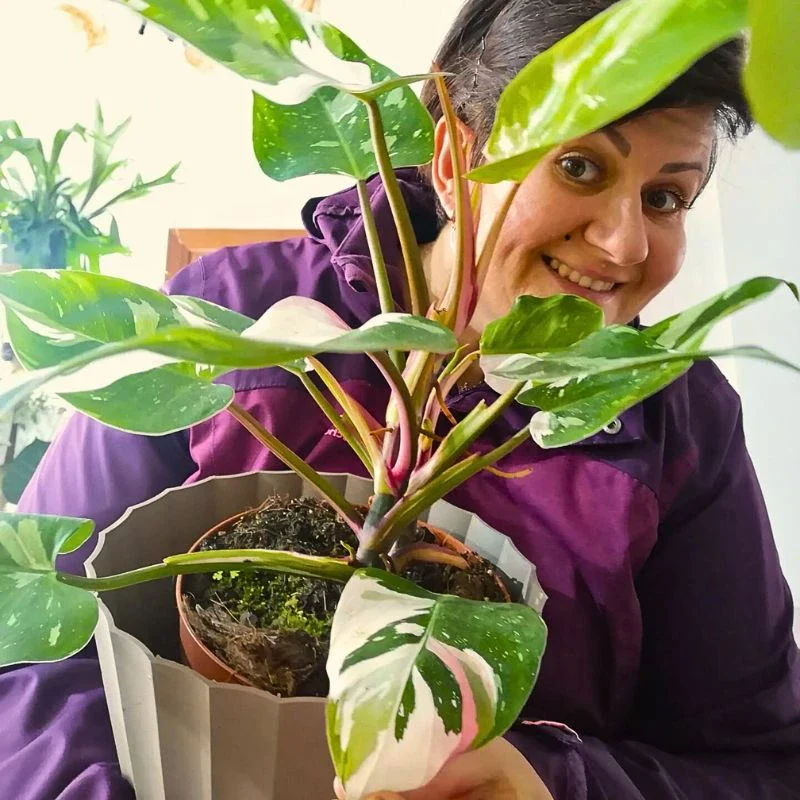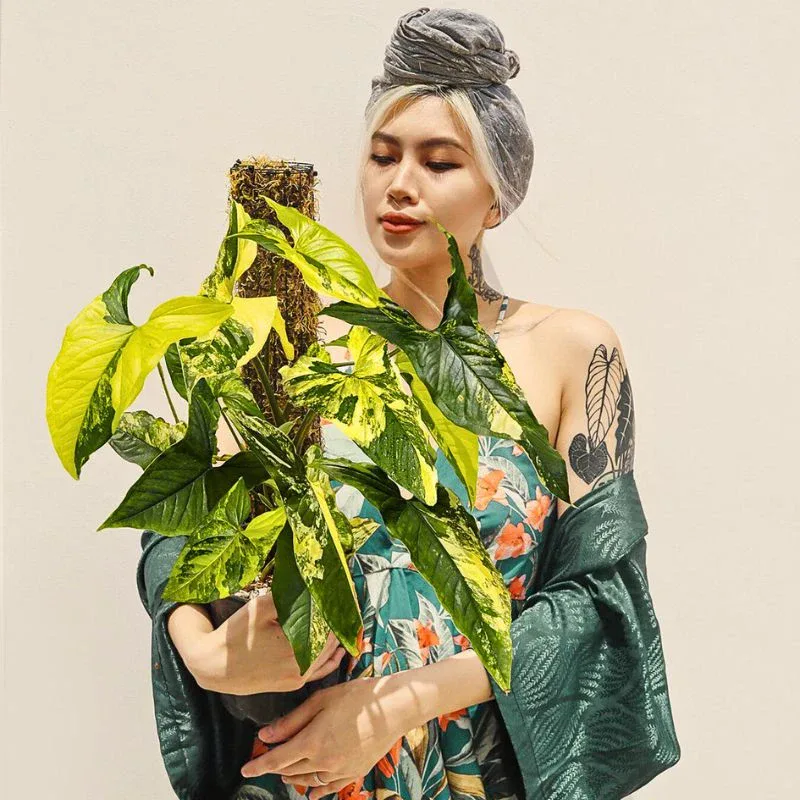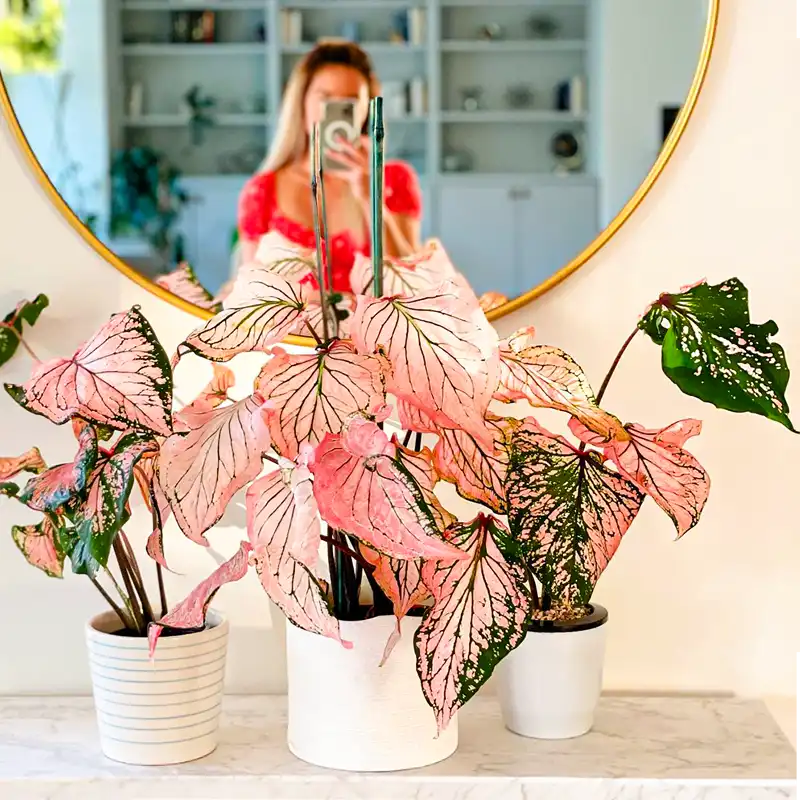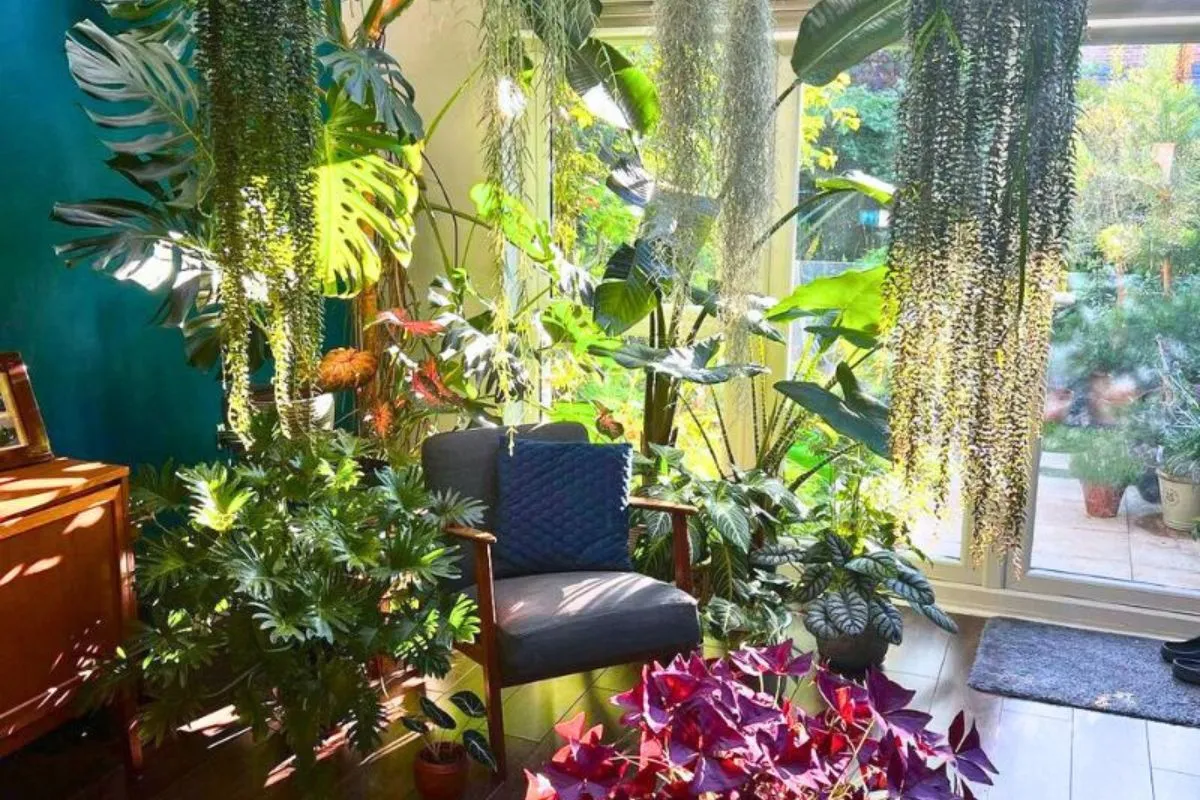Syngonium, also known as Arrowhead Vines, is a plant collector's dream. Not only because there are so many varieties, each with its own personality, to choose from but also because they make the perfect houseplant for people who have little to no plant care experience. And for the rare houseplant lovers who can't get enough of those variegated plants, the Syngonium Podophyllum Albo Variegatum might just become the next favorite plant in your collection, with its stunning leaf patterns and forgiving nature when it comes to caring for them.
Everyone Loves the Syngonium Podophyllum Albo Variegatum
The Syngonium Podophyllum Albo Variegatum belongs to the Araceae family which contains around thirty species and can be found throughout Central and South America's tropical and subtropical regions. Syngonium Podophyllum is a species of aroid that is really popular as a houseplant - just like the Colocasia, Philodendron, Aglaonema, Monstera, and Anthurium.
Images via @mkl.plants & @plant.sinner
In its natural habitat, the Syngonium Podophyllum climbs a few meters tall over the trunks of tropical jungle trees, clinging by its roots. They are prolific growers, meaning they like to spread out and extend in all directions. Some dwarf varieties tend to stay more compact, but don't be shy about pruning them, as they love to be tamed a will become fuller plants when trimmed back.
Train Them to Grow
One of the most wonderful attributes of Syngoniums is that they can be trained to grow however you want them to, whether it's on a stake, trellis, or even a wall. Their tendrils will attach themselves to surfaces, which is a little easier to do for smaller, young plants than older ones (they just need to be tied for a little extra support). Because of this, the Syngonium Podophyllum Albo Variegatum is also the perfect plant to incorporate into a green wall.
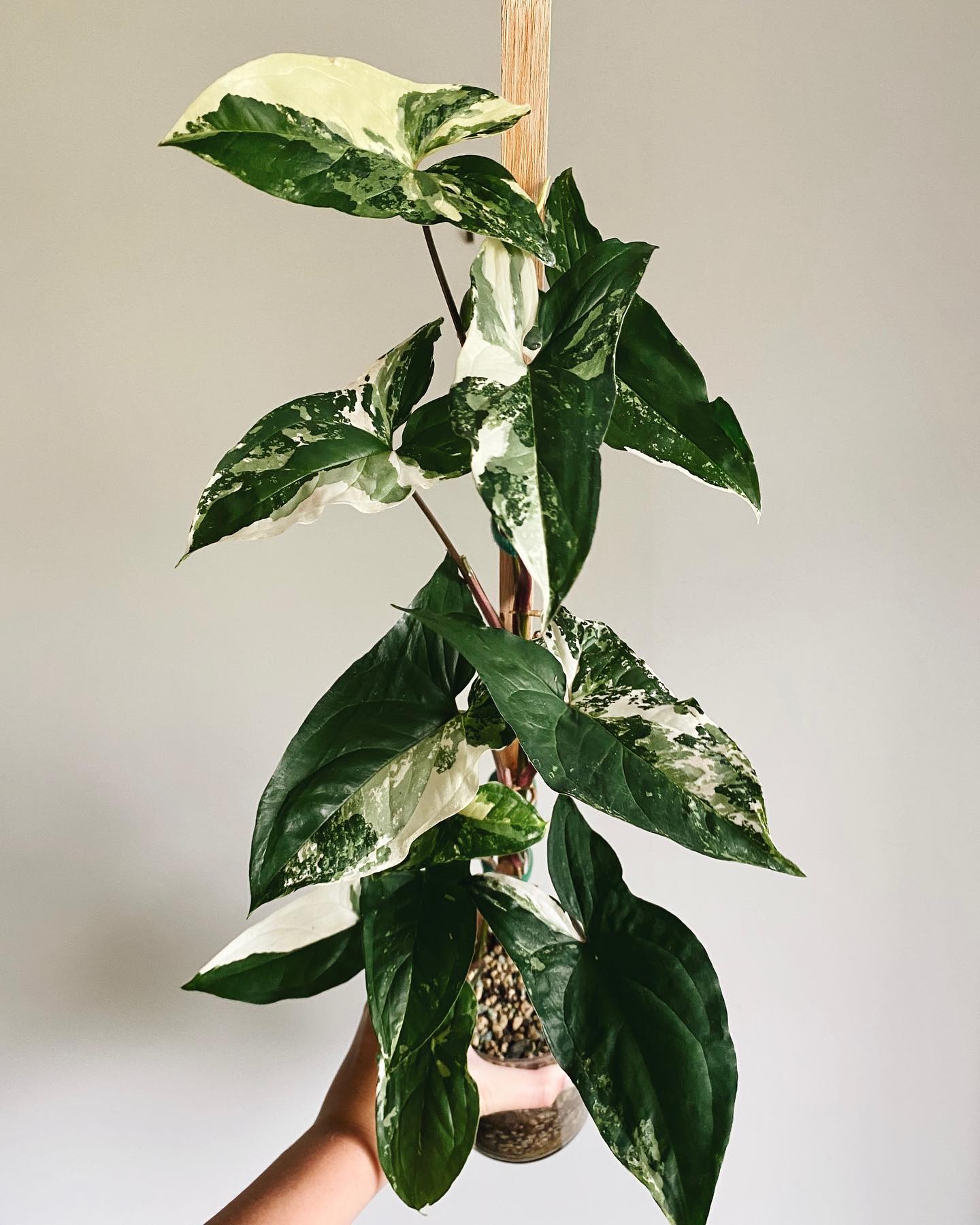
Variegation
Syngonium Podophyllum Albo Variegatum will hang over a pot or make a nice hanging basket plant. The dark green arrowhead-shaped leaves are marbled with large areas of pure white. This is called 'variegation'. In Latin, variegation means 'diversity of colors'. There is a mutation that causes the leaves to appear to lack chlorophyll, resulting in spots and stripes. When a branch reverts to solid green, cut that branch out as this will encourage the growth of the variegated leaves.
Images via @plantegutt
Popular Rare Houseplant
Rare houseplants and variegated varieties have become increasingly popular over the last couple of years and the Syngonium Podophyllum Albo Variegatum has definitely profited from this momentum. It has become a favorite among plant collectors for its striking variegated leaves. And it's easy to see why it's so well-loved, as no two leaves are the same and each seems to be more beautiful and interesting than the next.
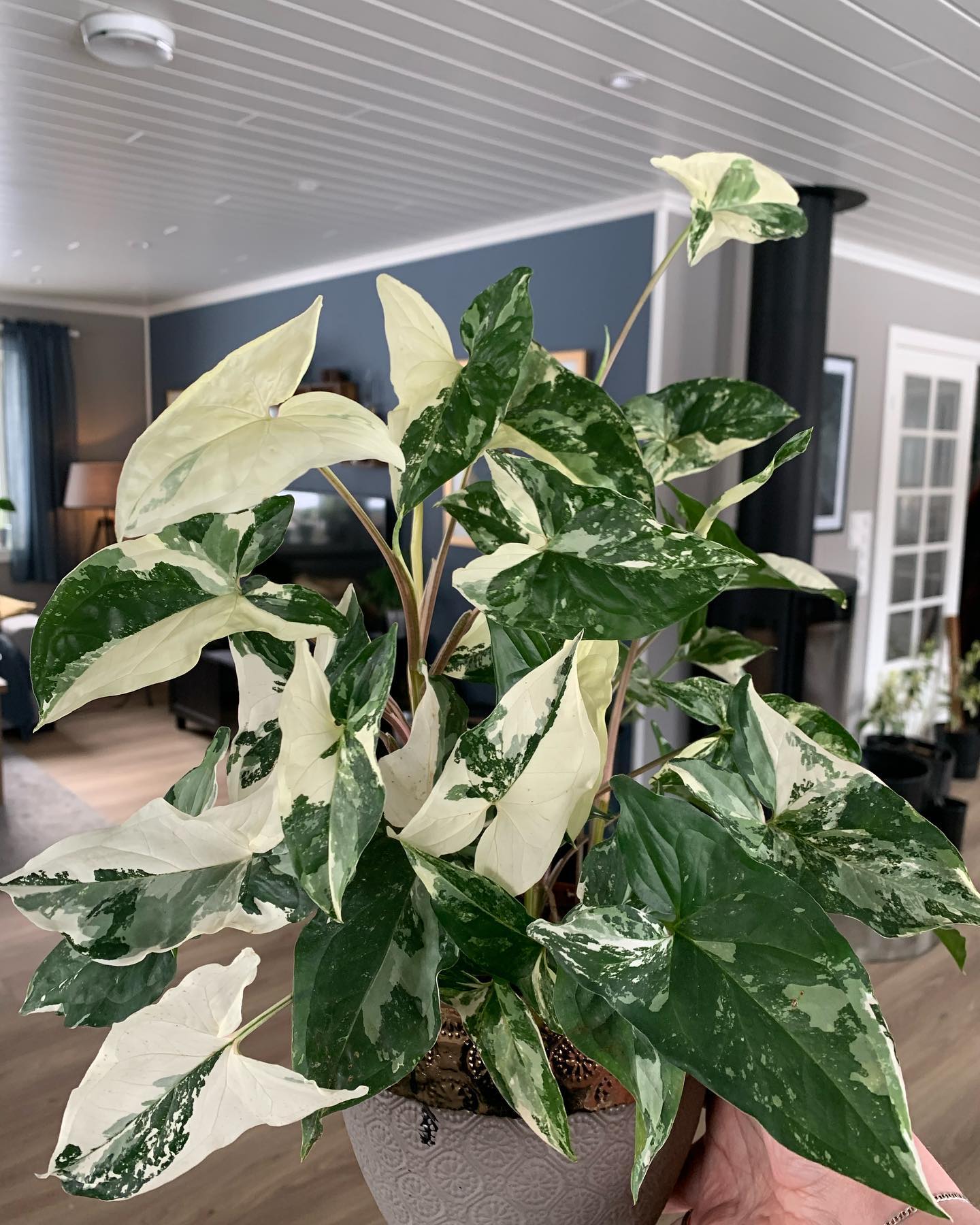
Syngonium Albo Variegatum Care Tips
Syngonium Podophyllum Albo Variegatum is the variegated version of the more common Syngonium Podophyllum, which you have probably seen before in shades of pink and green. Just like its non-variegated counterpart, this tropical stunner is relatively easy to care for. Unlike some of the other variegated plants that require special care, Syngonium Podophyllum Albo Variegatum is easy-going and will grow steadily with minimum attention. Here are some tips for letting your variegated Syngonium thrive indoors:
Temperature
As a rule, Syngoniums prefer a warm environment but they will thrive in a typical home or office setting. They grow in most household temperatures ranging from 15-25 °C (60-80 °F) though they prefer to stay on the warmer side. Especially during the winter months, make sure to keep your plants away from drafts and doorways.
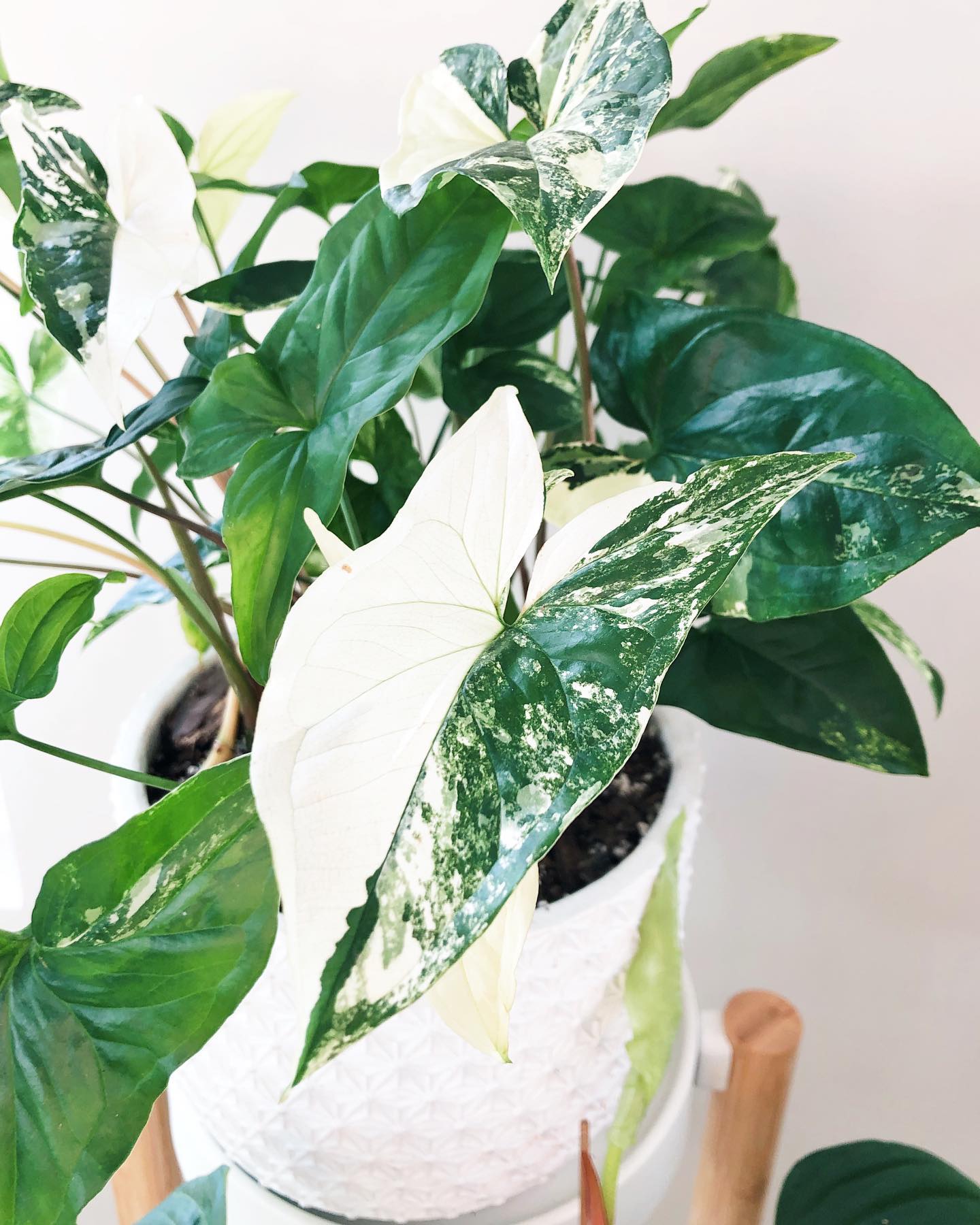
Light
Although Syngoniums are extremely low-light tolerant, they do grow faster and maintain their vibrant coloring and markings better when kept in medium to bright indirect light. It's important not to place them in full sun, as this will scorch the leaves. To maintain its variegation, the Syngonium Podophyllum Albo Variegatum should be grown in bright, indirect light. If grown in medium indirect light, your plant may produce more green leaves and lose its variegation.
Tip: If you don't have a lot of natural light inside, you can also grow Syngoniums under artificial light.
Watering
Allow your Syngonium Podophyllum to dry out partially between watering. If not watered for too long, the lower leaves will dry up and turn brown. In case this happens: soak the soil so the plant can re-hydrate. When you overwater your plant, the leaves will start to turn yellow and brown. Syngoniums perform best with a little bit of water at a time, which should be given (depending on the season) around 1-2 times a week.
Images via @godhongcilik
What Else You Need to Know
Propagating a Syngonium is easy peasy. You can root cuttings in water, or straight into potting compost. Both methods have a good success rate - providing you cut the right part of the plant. Also keep in mind that all parts of this plant are poisonous, so they should not be ingested and be kept away from children and pets.
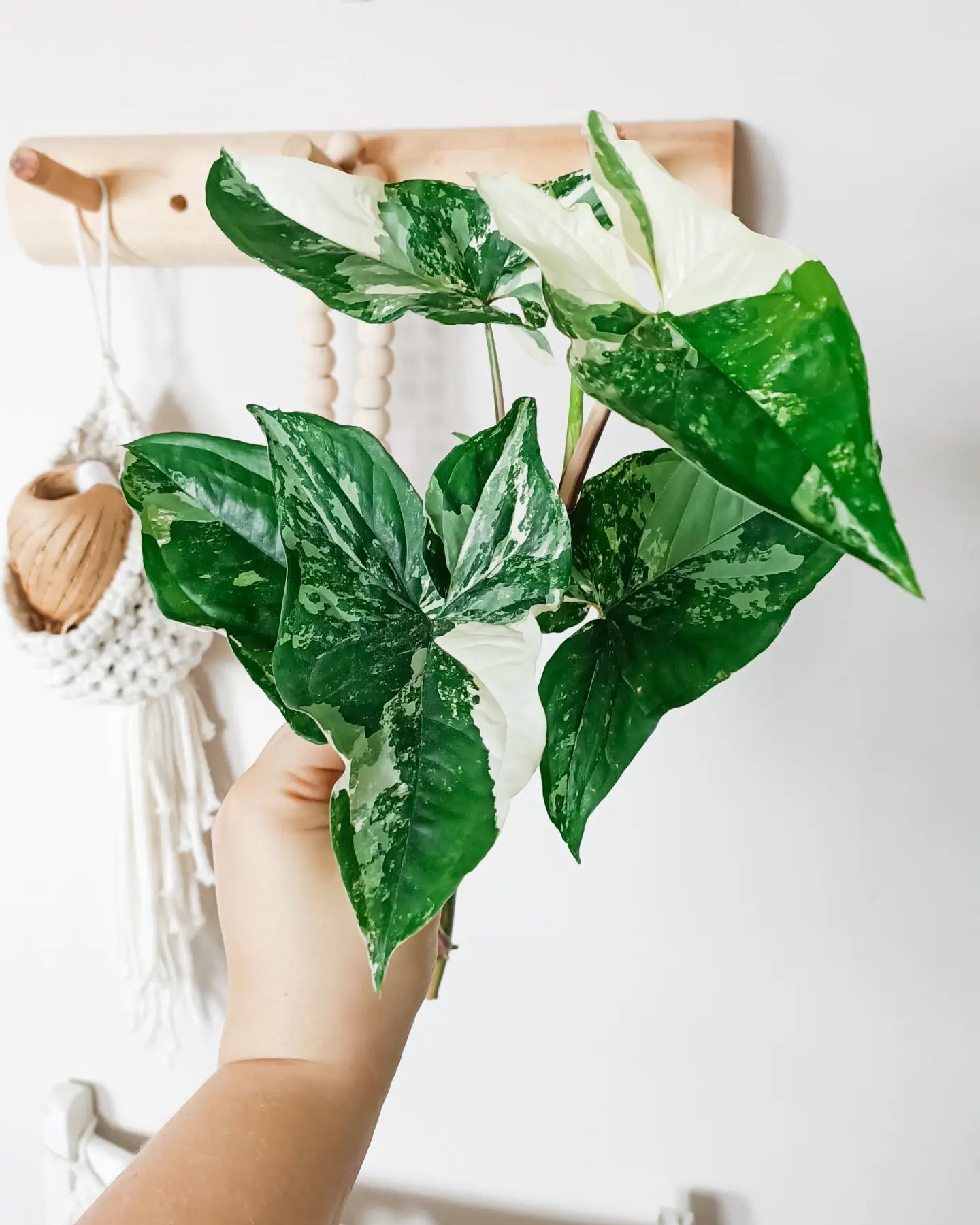
Variegated Plant Lovers
Can't get enough of all those beautiful rare and variegated plants either? Luckily, there are more special varieties ready to be discovered. How about The Amazing Variegated Hoya Carnosa Krimson Queen? Because this formerly old-fashioned, tricolor-variegated Hoya species has made its royal comeback on the houseplant wishlists.
Or check out this Rare Variegated Monstera Minima (Rhaphidophora Tetrasperma) Plant Sold for Over $ 19,000! And if you are looking for more inspiration, Max Snier tells you everything about The Most Wanted Rare Houseplants of 2022 in his blog on Thursd.

